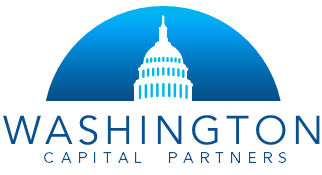Investors use hard money loans to finance short-term real estate investment projects and rental properties. They obtain these loans to rehab distressed properties better known as “fix and flips” or to secure a “buy and hold” rental property. A hard money lender will generate your loan based on the property you’re using as collateral, as well as borrower factors like your credit score and level of experience in real estate investing. Before you seek out financing for your next project, make sure you understand all of the advantages and risks of using hard money.
Hard Money Lending Pros and Cons
Here’s a short-list of all of the benefits and drawbacks you may experience when using a hard money loan. Keep reading for an expanded explanation for each hard money lending pro and con.
| Pros | Cons |
|---|---|
| Fast Closings & Quick Approvals | Medium-High Interest Rates |
| Low Credit Scores Accepted | Down Payment Required |
| Funding Fix and Flip Properties | Points Paid Up Front |
| Partnership | Extension Fees |
| Free Underwriting | Foreclosure/Default |
| No Pre-Payment Penalty | |
| Off-Market Properties |
What are the pros of using a hard money loan?
Hard money loans are often perceived as financing for investors with bad credit history. While this isn’t always true, a hard money loan can benefit you whether your credit is excellent or poor. Continue reading to learn the benefits of using a hard money loan.
1) Fast Closings & Quick Approvals
There are fewer requirements for getting a hard money loan approved than conventional bank loans. As a result, you can get a hard money loan funded in as little as 24 – 48 hours. Where banks will spend 30+ days structuring a loan based heavily on credit score, hard money lenders spend less time configuring a loan based on the profitability of a property. Furthermore, if you have a working relationship with a lender you can receive other benefits such as faster closings and paying fewer origination points.
2) Low Credit Scores Accepted
It’s no secret that banks will decline someone for having a low credit score. Hard money lenders, on the other hand, make decisions based on the profitability of the subject property and less on credit. Investors with a credit score of 620 or higher are typically approved for a hard money loan. If an investor’s credit score is lower than that, they’ll likely need to explain the situation to the lender, but it still might not be a deal-breaker.
3) Funding Fix and Flip Properties
A typical fix and flip property is one that is vacant and outdated – qualities that enable investors to buy at a low price. Although riskier, hard money lenders recognize the fact that distressed, neglected properties typically offer high-profit margins. As a result, lenders will often fund them after breaking down the numbers.
Banks, on the other hand, are risk-averse meaning they can’t lend on a property that goes beyond their lending criteria. Properties considered ‘uninhabitable’ are not eligible. Like comparing apples to oranges, hard money loans cater specifically to investors with these types of properties whereas banks do not.
4) Partnership
Hard money lenders are a great resource for contacts, advice, and guidance on deals. They can point you in the right direction for reputable contractors, title companies, stagers, agents, and how to meet them. Also, they’re a great resource for finding comparables and most can evaluate your deal for free. Gone are the days you use a lender just to get access to capital, investors are now looking for reputable lenders to form an ongoing partnership with.
5) Free Underwriting
To acquire a hard money loan, an investor must get pre-qualified through a lender’s underwriting process. During this process, the lender determines the overall risk of the loan and the profitability of the deal. Credit score, experience, and collateral are all components a lender takes into consideration. Most lenders in the area offer a free underwriting, but not all.
6) No Pre-Payment Penalty
Borrowers who complete their project early have the option to pay back their loan earlier than the 12-month loan term. Most lenders do not charge a prepayment penalty. On the other hand, conventional loans charge lower monthly interest but tend to make up their losses in a hefty pre-payment penalty. Investors that finish their project early can save money on interest payments and get into their next project quicker.
7) Off-Market Properties
Off-market properties are properties that are sold by wholesalers. A wholesaler is an individual who finds an off-market property, secures it with a contract, then resells to another investor in a matter of days. These properties are not publicly advertised online or on your local multiple listing service. If you’re in the market for a property to rehab, see if your lender can connect you with any local wholesalers.
What are the cons of using hard money?
Now that you know the most common hard money lending pros, let’s talk about the drawbacks. Hard money loans come with fees and rules on how to use the funds. When making the decision to use hard money lending as your source of capital, make sure you’re considering all of the common barriers we’ve listed below.
1) Medium – High-Interest Rates
Interest rates on a hard money loan range between 7 – 12%. Even if a deal is solid, a hard money lender is still taking on more risk by lending on a distressed property. Banks offer lower rates because they are typically lending on low-risk properties like owner-occupied primary residences with little to no construction needed.
2) Down Payment Required
For a fix and flip, investors are typically expected to bring at least 20% of the purchase price at closing. If you’re a novice investor, it can be hard to come up with this money, especially if you’re looking to flip in areas like Northern Virginia and DC where properties are more expensive.
Why do hard money lenders require down payments?
1) Reduce their risk of default/foreclosure
2) To incentivize investors to complete the project
The reality is that investors who have “skin in the game” are less likely to walk away from the project mid-rehab.
3) Origination Points
These are the fees a borrower pays in order to use a lender’s money and the time it takes for the lender to put together the deal. At closing, the borrower pays 2-5 percentage points of the total loan amount.
For example, 2 points (2% of the loan amount) on a $300,000 loan would be $6,000. Borrowers who benefit from fewer points typically have more experience, a great deal, and an executable plan from beginning to end.
4) Extension Fees
The length of a loan is typically 12 months. Borrowers are contractually required to complete their flip, sell the property, and pay back the lender within that amount of time. Issues can push a project’s timeline back, causing a borrower to request a loan extension.
Hard money lenders are generally flexible when asked to grant an extension. However, borrowers should be ready for the consequences that come along with an extension. Examples of these consequences could include increased monthly interest payments and extension fees.
5) Foreclosure/Default
The risk of foreclosure is very similar to a conventional mortgage with a bank. Unpaid monthly interest payments, failure to maintain or repair the property, and an unpaid loan are all reasons a borrower could be facing foreclosure. Because taking a property back mid-rehab is very costly for lenders, most are willing to help borrowers figure out a game plan for finishing the project as originally planned.
If your project isn’t folding out the way you want it to and you’re fearing default/foreclosure the best thing to do is to communicate your issues with the lender. And if you stop communication you’re more likely to lose the property.
Avoid a lot of the risks mentioned above by understanding the lender’s terms and fees. Also, having a strong exit strategy in place and committing to on-time payments will help you build a lasting relationship with a lender. Finally, once you’ve proved to your lender that you’re a safe investment by successfully completing a project, it is possible to receive lowered rates and lowered origination points.
As the Largest Hard Money Lender in the Mid-Atlantic, Washington Capital Partners offers investors fast closings, low rates, and superior service to help you reach your investing goals. Our underwriting process is completely free and is done in as little as 48 hours. There is no obligation to continue with the loan, so this is a great resource for investors that need an expert’s opinion when evaluating a deal.

